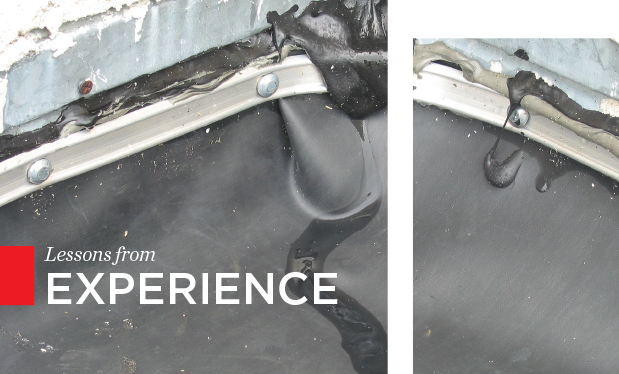On May 22, NRCA Chairman of the Board Nick Sabino, president and founder of Deer Park Roofing Inc., Cincinnati, testified before the House Committee on Small Business at a hearing to discuss the need for immigration reform that meets small businesses’ workforce needs. Testifying before Congress was an ideal opportunity for NRCA to advocate for solutions to an ongoing problem affecting the roofing industry.
Highlighting the problem
Sabino began his testimony by providing an overview of his business, describing how Deer Park Roofing is working to develop innovative solutions to recruitment challenges. The company has created an employee training and development program that provides internships and career paths for all associates. Working with three technical schools, three high schools and seven recruiting partners, Deer Park Roofing devotes substantial resources to attracting new employees.
Sabino noted that despite his company’s workforce development program and recent industry wage increases, Deer Park Roofing still has difficulty finding qualified applicants to perform the work necessary to meet consumer demand. Although Deer Park Roofing recently hired several new employees, the company still needs 10 to 15 more people immediately to keep up with a backlog of work that has reached record levels. The company’s experience is a common one in the roofing industry, and the problem is expected to become more severe in the future as a result of an aging workforce and other demographic trends.
Sabino presented statistics demonstrating the severity of the construction industry’s labor shortage. For example, according to the Bureau of Labor Statistics’ Job Openings and Labor Turnover Survey, construction job openings increased to 360,000 in March, the highest level recorded since the data collection began in 2000. Sabino explained to the assembled lawmakers that the labor shortage negatively affects the roofing industry’s supply chain. He noted manufacturing and distribution were flat in 2018 because of limited production capacity, and contractors now are being forced to turn down projects, causing slowdowns in commercial and residential construction. Project schedules are lengthening as a result of the labor shortage, which increases costs that ultimately are passed on to consumers.
NRCA’s efforts
After laying out facts regarding the industry’s labor shortage, Sabino presented NRCA’s two-track strategy to the lawmakers. He explained NRCA ProCertification,™ the association’s comprehensive program designed to promote professionalism and expand career paths for new and existing workers by providing professional certifications. He shared that NRCA is excited about the prospects for NRCA ProCertification and more people becoming interested in pursuing careers in the roofing industry.
Sabino also expressed NRCA’s support of career and technical educational programs and immigration reform legislation that meets the industry’s workforce needs. He thanked Congress for approving legislation in 2018 to expand and improve career and technical educational programs at the local and state levels and noted implementation of the law will provide more opportunities for students to start rewarding careers in roofing and other trades during the next decade.
Immigration reform
The core focus of Sabino’s testimony was immigration reform as a key component of the solution for the labor shortage. BLS projects employment demand for roofing professionals will increase 11% by 2026, and it is clear this demand cannot be met by native-born workers alone. Therefore, it is critical Congress establish a visa system that allows workers to legally enter the U.S. when warranted by economic conditions.
Sabino urged lawmakers to support the Workforce for an Expanding Economy Act (H.R. 1740), bipartisan legislation designed to meet workforce needs in sectors of the economy that require skilled workers in accordance with economic conditions. The bill would establish a two-track system that matches willing employers with willing temporary workers and provides more visas in times of economic strength and fewer visas during downturns. Employers operating in counties or metropolitan areas where the unemployment rate is lower than 5% could apply, and visa holders would have the ability to work for any participating employer.
To help combat illegal immigration, participating employers would be required to use the E-Verify electronic employment verification system to verify the work status of all new hires. H.R. 1740 would establish a visa system that is adaptable to rapidly changing markets, protects the interests of U.S. workers and visa holders, and enables employers to obtain the workers needed to grow their businesses.
Finally, Sabino urged Congress to provide a permanent solution for individuals working under temporary protected status. The ability to work legally under temporary protected status is granted to individuals who arrive in the U.S. because of war or natural disasters. Many temporary protected status recipients have been working productively in the construction industry for up to two decades.
Although NRCA recognizes the need for reform of the temporary protected status program, the program is critical to provide temporary protected status to qualified individuals who have a demonstrated track record so they may eventually adjust to legal permanent resident status. Failure to provide a long-term solution for these individuals will only exacerbate the roofing industry’s labor shortage and cause severe disruption for many hardworking individuals who have been contributing to their communities for many years.
Sabino concluded his testimony by reiterating the labor shortage is the single biggest challenge facing roofing industry employers and reaffirming NRCA’s desire to work with lawmakers on a bipartisan basis in support of immigration reform.
A positive experience
Sabino’s appearance at the House Committee on Small Business was the latest installment in NRCA’s history of supporting immigration reform that addresses the industry’s security and economic needs. NRCA has been a leader regarding immigration reform since it helped found the Essential Worker Immigration Coalition in 1999.
The thoughtful discussion of immigration policy among lawmakers and witnesses at the hearing was a welcome respite from the heated rhetoric that characterizes much debate in Washington, D.C. The outlook for congressional action on immigration policy remains uncertain, but NRCA will continue working to ensure policymakers hear the industry’s message and take action to address this critically important issue.
Duane Musser is NRCA's vice president of government relations in Washington, D.C.
This column is part of Rules + Regs. Click here to read additional stories from this section.



